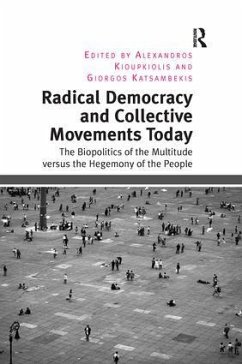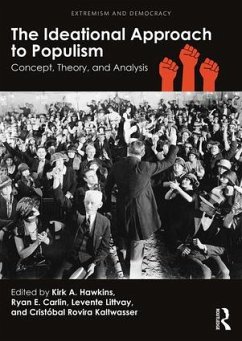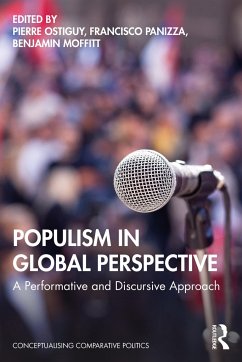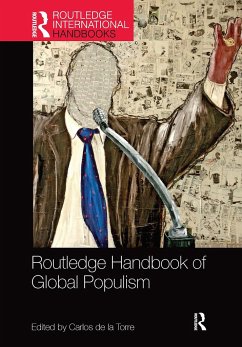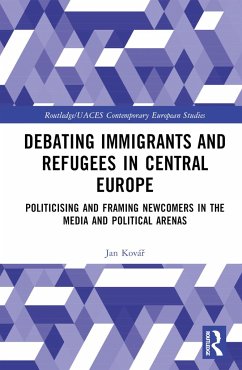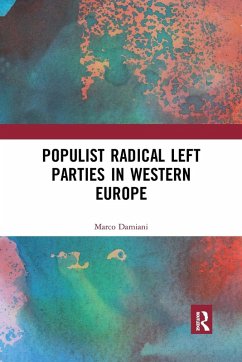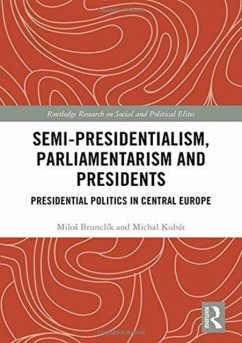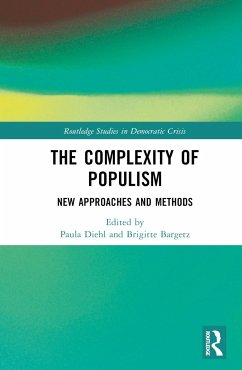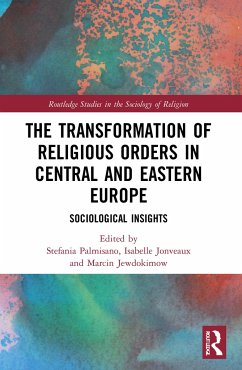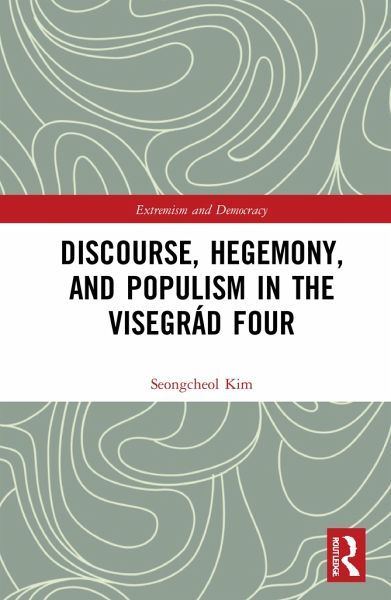
Discourse, Hegemony, and Populism in the Visegrád Four
Versandkostenfrei!
Versandfertig in 6-10 Tagen
45,99 €
inkl. MwSt.
Weitere Ausgaben:

PAYBACK Punkte
23 °P sammeln!
This is the first book-length account of populism in the Visegrád Four (V4) countries - Czech Republic, Hungary, Poland, and Slovakia - for the first 30 years of multi-party competition since the transformative events of 1989-91 in Central and Eastern Europe.Advancing a post-foundational approach to populism based on a semi-formal reading of Ernesto Laclau's theory, the book undertakes a detailed examination of how the 'people' has been constructed in populist discourses in the party systems of the four countries since 1989. Drawing on a wealth of source material, the book offers both a wide-...
This is the first book-length account of populism in the Visegrád Four (V4) countries - Czech Republic, Hungary, Poland, and Slovakia - for the first 30 years of multi-party competition since the transformative events of 1989-91 in Central and Eastern Europe.
Advancing a post-foundational approach to populism based on a semi-formal reading of Ernesto Laclau's theory, the book undertakes a detailed examination of how the 'people' has been constructed in populist discourses in the party systems of the four countries since 1989. Drawing on a wealth of source material, the book offers both a wide-ranging and in-depth overview and classification of populism in the V4 in terms of discursive (e.g. centrist, conservative, left-wing, liberal, nationalist, social) and hegemonic type (e.g. authoritarian hegemonic, generational counter-hegemonic) alike.
This book will be of interest to students and scholars of populism, party politics, and Central and Eastern Europe.
Advancing a post-foundational approach to populism based on a semi-formal reading of Ernesto Laclau's theory, the book undertakes a detailed examination of how the 'people' has been constructed in populist discourses in the party systems of the four countries since 1989. Drawing on a wealth of source material, the book offers both a wide-ranging and in-depth overview and classification of populism in the V4 in terms of discursive (e.g. centrist, conservative, left-wing, liberal, nationalist, social) and hegemonic type (e.g. authoritarian hegemonic, generational counter-hegemonic) alike.
This book will be of interest to students and scholars of populism, party politics, and Central and Eastern Europe.





